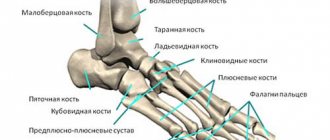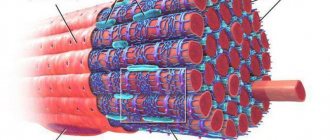Have you ever wondered how hunger differs from appetite? Hunger is a physiological need for food. Appetite is a person’s food desires. It can occur when the body does not need food at all. Various factors influence it. Lifestyle. Habits. Mental and physical condition. Why do you always want to eat? Perhaps the answer lies in one of twelve common reasons.
You're not eating enough protein
Eating enough protein is important to control your appetite. Protein has hunger-reducing properties that can help you automatically consume fewer calories throughout the day. It plays a role in increasing the production of hormones that signal satiety and reducing levels of hormones that stimulate hunger (, , , ).
Because of these effects, you may feel hungry frequently if you don't eat enough protein.
In one study, 14 overweight men who ate 25% of their calories from protein for 12 weeks experienced a 50% reduction in desire to eat at night compared to the group that consumed less protein ().
Additionally, people who consumed more protein reported feeling more full throughout the day and having fewer obsessive thoughts about food ().
Many different foods have high levels of protein, so it's not difficult to have enough in your diet. Including protein foods at every meal can help prevent excessive hunger.
Animal products such as meat, poultry, fish and eggs contain large amounts of protein. It is also found in some dairy products, including milk and yogurt, as well as several plant foods such as legumes, nuts, seeds and whole grains.
Summary:
Protein plays an important role in appetite control by regulating your hunger hormones. If you don't eat enough protein, you may feel hungry all the time.
Poor nutrition and metabolic disorders as causes of constant hunger
For minor deviations and occasional attacks, the reasons may be as follows.
Fast metabolism
Too fast a metabolism, as well as a slow one, is dangerous.
People with this deviation have a fragile physique, have difficulty gaining muscle mass and feel hungry all the time. Due to the accelerated metabolism, more adrenaline is produced, which makes a person irritable. In most cases, fast metabolism is not an independent disease, but a symptom. It is often observed with hormonal imbalances. Sometimes the acceleration of metabolism is associated with increased physical or mental stress.
Skipping or improper meals
When you skip a meal, the body does not receive the required amount of energy and falls into a state of stress.
He remembers that he was hungry and tries to stock up in case it happens again. As a result, during the next meal a person consumes a portion that is several times higher than the standard calorie content. If this is repeated often, the internal regime of the body becomes confused, the stomach constantly asks for food. Additionally, the walls of the organ are stretched, making it difficult for a person to get enough of the previous portions.
The environment during meals influences satiety.
First of all, the receipt of a signal indicating satiety depends on visual and taste data.
The feeling of fullness comes later, when a person has lunch while watching movies or while reading. All this leads to overeating. Poor chewing of food can also cause hunger, which can lead to insufficient absorption of nutrients and accelerated evacuation of feces.
Well-chewed food is quickly absorbed by digestive juices.
Insufficient intake of healthy fats
Many people mistakenly believe that all fats are harmful and refuse to eat them.
However, in reality, lipids are needed to nourish cells. They are as integral a part of metabolism as proteins and carbohydrates. If there is insufficient lipid intake, the brain will send hunger signals, trying to make up for the deficiency. If you want to get rid of discomfort, try introducing sources of healthy unsaturated fatty acids into your diet: nuts, fish, vegetable oils, etc.
Lack of protein in the diet
The situation with proteins is the same as with fats. If the body lacks amino acids, it tries to make up for their deficiency.
Proteins are found in fish, meat, eggs, poultry, dairy products, nuts and legumes.
Other indirect symptoms of amino acid deficiency include muscle weakness, deterioration of hair, nails and skin, severe fatigue, slow wound healing and swelling.
Severe fatigue develops when there is a lack of protein in the body.
Eating a lot of carbohydrates
The problem may lie in consuming sources of fast carbohydrates: bread, potatoes, honey, carrots, juices, etc. They provide a short-term feeling of satiety, but can be high in calories. Because of this, a person quickly becomes hungry. If you do not control the menu, with this diet, weight can increase dramatically.
Focusing on the number of calories rather than the nutritional value of food
Some people eat too many foods that do not provide a long-term feeling of fullness, while others severely limit themselves in nutrition.
Both scenarios can lead to the same negative outcome. When creating a menu, you need to take into account not only the number of calories, but also the glycemic index, as well as the content of nutrients, otherwise the body will experience a deficiency.
The glycemic index of foods must be taken into account.
Lack of dietary fiber in the diet
When fiber enters the stomach, it absorbs liquid and increases in size, which leads to satiety. As a result, a person manages to get rid of hunger pains with small portions of food. At the same time, the tough fibers help remove toxins, rotting food particles and improve nutrient absorption.
Dehydration
The body may confuse thirst with hunger, including due to drinking part of the liquid with food. To avoid overeating, when the first urge appears, you should drink a glass of water. If after 15-20 minutes the discomfort does not disappear, you need to organize a snack. It is recommended to drink at least 2 liters of water per day.
It is recommended to drink up to two liters of water per day.
Frequent alcohol consumption
Alcohol inhibits satiety and promotes overeating. Alcoholic drinks contain a lot of calories, so they speed up the process of weight gain.
Leptin resistance
Leptin is a substance that regulates the feeling of fullness. The level of susceptibility to it depends on the hormonal balance. Some pathologies, including obesity, can develop resistance to leptin and cause hunger.
Portions too big
With constant consumption of large portions, the stomach stretches and gets used to the volume received.
The body becomes low on nutrients, so it constantly requires supplements. A psychological trick will help you cope with this: you need to replace large plates with small ones. Then even tiny portions will look standard, and the person will be better satisfied.
Replace large plates with small ones and the portion will seem larger.
You don't sleep enough
Getting adequate sleep is extremely important for your health. Sleep is essential for the proper functioning of your brain and immune system, and it is associated with a lower risk of developing several chronic diseases, including heart disease and cancer ().
In addition, getting enough sleep is a factor in appetite control because it helps regulate ghrelin, an appetite-stimulating hormone. Lack of sleep leads to higher levels of ghrelin, which is why you may feel hungry when you're sleep-deprived (,).
In one study, 15 people who were deprived of sleep for just one night reported being significantly hungrier and chose a 14% larger meal size compared to the group who slept for eight hours ().
Getting enough sleep also helps ensure adequate levels of leptin, which is a hormone that promotes satiety (, ).
To keep hunger under control, it is generally recommended to get at least eight hours of uninterrupted sleep each night.
Summary:
Sleep deprivation is known to cause fluctuations in hunger hormone levels and can encourage a person to eat more.
You eat too many refined carbohydrates
If you have a question about why you want to eat all the time, one of the reasons may be refined carbohydrates, namely their significant consumption.
Refined carbohydrates have been processed and lack fiber, vitamins and minerals. One of the most popular sources of refined carbohydrates is white flour, which is found in many foods such as baked goods and pasta. Also included in the list of foods containing refined carbohydrates is white rice. Foods such as sodas, candies and baked goods that are made with refined sugars are also considered refined carbohydrates.
Since refined carbohydrates do not contain fiber, your body digests them very quickly. This is the main reason why you constantly want to eat, since refined carbohydrates do not contribute to a significant feeling of fullness ().
Additionally, consuming refined carbohydrates can cause rapid spikes in your blood sugar levels. This leads to an increase in insulin levels, the hormone responsible for transporting sugar into your cells (,).
When a lot of insulin is released at once in response to high blood sugar, it begins to quickly remove sugar from the blood, which can lead to a sharp drop in blood sugar (,).
Fluctuating blood sugar levels signal your body that it needs more food, which is another reason why you often feel hungry. Especially if refined carbohydrates are a significant part of your diet ().
What to do if you constantly want to eat? To reduce your intake of refined carbohydrates, simply replace them with healthier whole foods such as vegetables, fruits, legumes and whole grains. These foods are still high in carbohydrates, but they are rich in fiber, which is good for keeping hunger under control ().
Read more about refined carbohydrates, their harm to health and what products they are contained in here - Refined carbohydrates: harm, list of products.
Summary:
Refined carbohydrates lack fiber and cause fluctuations in blood sugar levels, which are the main reasons why you are constantly hungry.
Causes of increased appetite
You may have asked yourself more than once: why do I constantly eat? Even if you see no reason for concern (slim figure, no digestive problems), you need to understand the reasons for increased appetite: a constant desire to consume food can serve as a signal of a serious organic disease or mental disorder.
Why do you always want to eat?
Insufficient fluid intake
In the part of the brain that signals hunger, there is a center responsible for thirst. By confusing lack of satiety with the desire to drink water, a person may overeat without noticing dehydration and consuming extra calories.
Eating foods low in fiber
The lack of dietary fiber (soluble and insoluble fiber) in the diet leads to rapid evacuation of food from the stomach, constipation, problems with digestion and satiety of the body. Regular consumption of vegetables, oatmeal, and unsweetened fruits helps reduce appetite, reduce the risk of cardiovascular pathologies, obesity and type 2 diabetes.
Bad habits
Smoking and drinking alcohol negatively affect not only your health, but also contribute to weight gain. The habit of smoking makes you want to chew something periodically, and alcoholic drinks are high in calories and make you want to eat a lot.
Limiting Fats
The absence or insufficient intake of fats in the body can lead to a constant feeling of hunger and increased cravings for simple carbohydrates. Eating healthy fats can reduce your appetite (these include medium chain triglycerides and Omega-3 PUFAs, which can be obtained from fatty fish, coconut and flaxseed oil, nuts, and seeds).
Excess simple carbohydrates in the diet
An unbalanced diet consisting of sweet foods or empty calories leads to an increase in appetite: the body does not receive the substances it needs, and it signals this, which is manifested by an uncontrolled desire to absorb food. Having eaten candy to satisfy the feeling of hunger, a person not only increases appetite, but also forces the body to look for new sources of satiety (after all, he did not get the necessary macroelements from sweets).
If you don't understand why you constantly want to eat, study your daily menu. An excess of refined foods devoid of nutrients (flour, soda, sugar) leads to surges in blood glucose levels, causing an increase in the hormone insulin. Unstable blood sugar is a signal that you need to increase your food intake, which makes you feel hungry.
A regime with improper distribution of work and rest
The habit of compensating for inadequate sleep with a hearty breakfast and frequent snacks during the day leads to changes in hormonal levels and excess weight gain. If you have the opportunity to sleep an extra hour, choose rest rather than a mug of coffee and sandwiches. To normalize your appetite, try going to bed at the same time and sleeping at least eight hours a night.
Insufficient protein intake
Protein foods have appetite-reducing properties: they fill you up without causing sudden spikes in blood sugar, which means they don’t cause a subsequent feeling of hunger after eating. If you are constantly hungry, think about whether you consume enough protein (for women, the daily norm is 58-87 g, for men - 65-117 g, depending on activity during the day).
Increased emotional stress
People experiencing stress are divided into two categories: some cannot eat, others eat everything, calming themselves with the process of chewing. If you don't stop using food to suppress emotions, you can turn your body into a sloppy barrel of fat, and make your organs and blood vessels unhealthy.
Exceeding the norm of physical activity
Increased energy expenditure naturally leads to feelings of hunger. Regular exercise speeds up metabolism, but causes an increase in appetite, so physical activity does not always contribute to weight loss. In addition, a sudden refusal from sports can lead to weight gain due to the habit of eating a lot, but reducing physical activity.
Wrong attitude towards eating
The love of food and feasts, the use of sweets and snacks as a complement to watching movies, stress eating is a bad habit and the wrong attitude towards nutrition and your body. Food is a building material, energy for vital processes, and not pleasure and consolation.
Diets and food restrictions
The prohibitions that people who are losing weight come up with have a negative impact on their relationship with food. You can't have bread on a diet, bananas, pork, soup, pasta - who said that?
You will want any product that is forbidden according to the diet even more, and limiting the caloric content of food consumed will lead to breakdowns and further weight gain.
Are you familiar with the situation when, before the next weight loss marathon, you eat until your stomach hurts and promise not to eat too much from tomorrow? For almost half of those losing weight, the new day becomes no different, and the unfortunate ones overeat again, promising to start the diet on Monday.
Taking medications that increase appetite
Forced use of antidepressants, antipsychotics, hormonal drugs, and insulin therapy can lead to increased appetite and increased feelings of hunger. If you think the pills may cause these side effects, talk to your doctor about possible alternative treatments or monitor the amount of food you eat.
Diseases
The condition when you constantly want to eat is not a rare pathology and can be caused by the following diseases:
- hyperthyroidism;
- type 2 diabetes mellitus;
- bulimia;
- acoria (impaired hypothalamic function);
- hyperphagia.
- gastritis (the patient feels relief when he eats, so he overeats);
- depression.
Pregnancy
It's not uncommon to feel hungry all the time during pregnancy. This is due to fetal growth, changes in hormone levels in the blood, depression and constant fatigue. Food whims are not uncommon - the desire to eat foods that are incompatible with each other, rare fruits or inedible objects (chalk, coal, sand). During this period, it is difficult to deal with increased appetite, because a woman can justify overeating with her situation (which is why she gains 10-30 kg in three trimesters and then gets upset).
In the early stages of pregnancy, a pregnant woman constantly wants to eat due to toxicosis: nausea is reduced by frequent snacks throughout the day. You shouldn’t blame yourself for mistakes in food, but you need to control the amount of food you eat and not eat for two.
Lactation
During the period of breastfeeding, a woman spends an additional approximately 500 kcal per day on lactation, which is why the mother may experience hunger. However, an increased appetite (the habit of eating for two, eating away fatigue) and justifying your eating behavior with the status of a nursing mother is not the best thing about motherhood.
Your diet is low in fat
Fat plays a key role in keeping you feeling full. This is partly due to its slow passage through the gastrointestinal tract. This means you take longer to digest them and they stay in your stomach for a longer period of time. Additionally, eating fatty foods can release various hormones that increase satiety (, ,).
If your diet contains little or no fat, you may feel hungry all the time.
One study of 270 obese adults found that those who followed a low-fat diet had a significant increase in carbohydrate cravings and preference for high-sugar foods compared to the group that followed a low-carbohydrate diet. ().
Additionally, people in the low-fat group reported feeling more constantly hungry than the low-carbohydrate group.
There are many healthy high-fat foods you can include in your diet to increase your fat intake. Certain types of fats, such as medium-chain triglycerides (MCTs) and omega-3 fatty acids, have been studied most for their effects on reducing appetite (, , ,).
The richest source of MCTs is coconut oil, and omega-3 fatty acids are found in fatty fish such as salmon, tuna, mackerel and herring. You can also get omega-3s from plant foods such as walnuts and flax seeds.
Some other healthy sources of high-fat foods include avocados, olive oil, eggs, and full-fat yogurt.
Summary:
You may feel hungry all the time if you don't eat enough fat. This is because fat plays a role in slowing down digestion and increasing the production of hormones that promote satiety.
Special cases
It’s worth talking separately about how and why a constant feeling of hunger manifests itself in different categories of the population, as well as with regards to certain foods
Among women
For representatives of the fair sex, constant hunger may be associated with certain life situations.
PMS
In the second half of the menstrual cycle, a powerful hormonal surge occurs in the female body. It is he who determines the mood swings that most people experience during this period. Much less often, the consequence of this “explosion” is a constant desire to eat, which is very difficult to cope with. Here you just need to be patient, because it does not last long (2-3 days before menstruation) and only once a month. The acquired extra pounds can then be removed with the help of a light diet and more intense training than usual.
Pregnancy
According to statistics, about 75% of women carrying a child constantly want to eat throughout the entire 9 months or during certain periods of pregnancy and cannot do anything about it. There are several reasons:
- Changes in hormonal levels.
- Due to toxicosis, the body experiences a lack of nutrients that it asks to be replenished.
- The expectant mother has to eat for two.
To control your appetite during pregnancy, you need to listen to your doctor in everything and eat right. If hunger is too annoying and prevents you from enjoying this wonderful period of life, consult a gynecologist.
Contraceptive drugs
Most contraceptive drugs are hormonal, and this is often the main reason for constant hunger. Moreover, the tablets do not have to be new. The body can rebel at any stage of taking them. To eliminate this factor, you need to take a blood test for hormones, change your contraceptive, or abandon it altogether.
In men
Physical exercise
If a man has to do hard physical work as part of his job, and in his free time he additionally goes to the gym, where he exhausts himself with training, he cannot avoid a constant feeling of hunger. After all, this is the only way the body can require replenishment of spent energy.
"Men's diseases"
Prostatitis and impotence are not the entire list of male diseases that may be accompanied by a desire to constantly eat. Cavernitis, paraphimosis, andropause, vesiculitis, orchitis - all these pathologies can be compensated by unbridled appetite.
In children
In children, an incessant feeling of hunger is most often caused by two factors.
Parasites
Children often become carriers of various parasites. The latter feed within the body mainly on carbohydrate foods. Therefore, if a child asks for sweets very often, but his weight does not increase (and in some cases even decreases), it makes sense to check him for parasitic diseases.
Stress
If a child has experienced severe psychological trauma (parental divorce, domestic or school violence), this may cause an uncontrollable appetite.
You're not drinking enough water
Proper hydration is incredibly important to your overall health. Drinking enough water has several health benefits, including being important for improving brain and heart health and optimizing exercise performance. In addition, water keeps the skin and digestive system healthy ().
Water is also quite good at inducing a feeling of fullness in the stomach, and has the potential to reduce appetite when consumed before meals (,).
In one study, 14 people who drank two cups of water before meals consumed nearly 600 fewer calories than those who didn't drink water ().
If you don't drink enough water, you may notice that you feel hungry often. It is also known that a feeling of thirst can be mistaken for a feeling of hunger. If you're always hungry, it may be helpful to drink a glass or two of water to see if it's thirst ().
To hydrate your body properly, simply drink water when you feel thirsty. Eating plenty of water-rich foods, including fruits and vegetables, will also help meet your water needs ().
Summary:
You can always get hungry if you don't drink enough water. This is due to the fact that it has appetite-reducing properties. It is also possible that you are confusing the feeling of thirst with the feeling of hunger.
You're not eating enough fiber
If your diet does not contain fiber, you may feel hungry often. Eating plenty of high-fiber foods is helpful for keeping hunger under control. High-fiber foods slow down the rate of gastric emptying and take longer to digest than low-fiber foods (, ).
In addition, high fiber intake affects the release of appetite-suppressing hormones and the production of short-chain fatty acids, which have been shown to promote feelings of fullness ().
It's important to note that there are different types of fiber. Some of these types of dietary fiber are better than others at keeping you full and preventing hunger. Several studies have found that soluble fiber (dietary fiber that dissolves in water) is more filling than insoluble fiber (, , ).
Great sources of soluble fiber include foods such as:
- oatmeal
- flax-seed
- sweet potato (yam)
- oranges
- Brussels sprouts
A high-fiber diet not only helps reduce hunger, but is also associated with a number of other health benefits, such as a reduced risk of heart disease, diabetes and obesity ().
To ensure you get enough fiber, choose a diet rich in whole plant foods, such as fruits, vegetables, nuts, seeds, legumes and whole grains.
Summary:
If your diet does not contain fiber, you may find that you are always hungry. This is because fiber plays a role in reducing appetite and making you feel full.
I always want to have reasons
An effective way to protect yourself from temptation is to remove everything tasty out of sight. By the way, if there is a lot of food in the refrigerator, that’s good. But only on the condition that it is healthy: vegetables, fruits, herbs, fish, poultry, chicken, dairy products. But you should get rid of semi-finished products, canned food and sweets. What other rules will help you lose weight faster and break out of the shackles of overeating?
- Do not go to the store on an empty stomach: this will create more temptations to buy tasty and unhealthy food. In addition to the obvious health benefits, you will get good savings.
- Eat more often, but in small portions.
- Keep a food diary.
- Include dietary supplements in your diet that will help get rid of cravings for sweets. For example, “Yellow Tablets” from Herbalife Nutrition*, which contain chromium, reduce the need for sweets and help control hunger, and Garcinia Cambogia, a rich source of hydroxycitric acid, helps control appetite and stimulates the fat burning process.
Poor nutrition is responsible for obesity, atherosclerosis, hypertension, heart attack and even gastrointestinal cancer. That is why there are collections of recommendations based on WHO documents. To avoid unhealthy weight gain, total fat intake should not exceed 30% of total energy intake, free sugars should be reduced to 10%, and salt to 5 g per day.
To stop overeating, protein must be present in your diet. This is a necessary complex of amino acids: thanks to these substances, all regenerative processes in the body occur. You can get protein from plant or animal foods, and in case of severe deficiency, from protein shakes. For example, “Formula 1” from Herbalife Nutrition can replace a full meal, saturating the body with the necessary amount of protein and providing a long-lasting feeling of satiety. One serving of such a protein shake can contain up to 14 g of protein (this depends on the taste of the drink). Don't forget about fiber: Dietary Fiber Complex and Oatmeal-Apple Drink from Herbalife Nutrition will help you with this.
You don't concentrate on food while eating
Why do you always want to eat? It may also be due to low concentration on food during meals.
If you live a busy lifestyle, you may often find yourself eating while distracted or thinking about things. While it may save you time, eating while doing something can be detrimental to your health as it increases your appetite, calorie intake and therefore body weight.
The main reason for this is that by being distracted while eating, you reduce your awareness of how much you are actually consuming. This prevents you from recognizing satiety cues, which doesn't happen when you're eating with a focus on food.
Several studies have shown that those who are distracted while eating are hungrier than those who concentrate on eating ().
In one study, 88 women were instructed to eat either while distracted or while sitting silently. Those who were distracted were less full and had an increased desire to eat more throughout the day, compared to those who ate in silence ().
Another study found that subjects who were distracted by playing a computer game during lunch were less full than those who did not play the game. Additionally, distracted people were found to consume 48% more food later in the day ().
To prevent constant hunger, you need to avoid distractions while eating. This will allow you to enjoy the food you eat while helping you better recognize your body's satiety signals.
Summary:
Lack of concentration on food may be the reason why you constantly want to eat, as it makes it difficult for you to recognize the feeling of fullness.
The habit of being distracted while eating
Many people like to eat in front of the TV on. They combine meals with watching the news or chatting on social networks. You can't do this. The brain ceases to control the amount of food consumed. As a result, it misses the signal of satiety. And as a result, no matter how much a person eats, after a short time he will feel hungry again.
You train a lot
Individuals who exercise a lot (play sports) burn a large number of calories. This is especially true if you regularly expose your body to high-intensity physical activity or exercise for long periods of time, such as training for a marathon.
Research has shown that those who exercise regularly tend to have a faster metabolism. This means they burn more calories at rest than those who lead a moderate or sedentary lifestyle (, ,).
In one study, 10 men who did a vigorous 45-minute workout increased their overall metabolic rate by 37% for the day, compared to another day when they didn't exercise ().
Another study found that women who exercised daily for 16 days burned 33% more calories throughout the day than the group that did not exercise, and 15% more calories than women who exercised moderately. The results were similar for men ().
Although several studies have found that exercise is beneficial for suppressing appetite, there is some evidence that vigorous long-term exercise causes an increase in appetite, in contrast to those who do not exercise (, , , ).
You can prevent the constant hunger that comes with exercise by simply eating more calories and nutrients to cover your energy expenditure during exercise. It's best to increase your intake of foods high in fiber, protein, and healthy fats.
Another solution is to reduce the number of exercises or reduce the intensity of your workouts.
It's important to note that this mainly applies to those who are active athletes who often work out at high intensity or for long periods of time. If you exercise moderately, you probably don't need to increase your calorie intake.
Summary:
Individuals who regularly exercise at high intensity tend to have an increased appetite and a faster metabolism. Thus, they may experience frequent hunger.
You drink too much alcohol
Alcohol is well known for its appetite-stimulating effects ().
Research has shown that alcohol can inhibit hormones (such as leptin) that reduce appetite, especially when consumed before or during meals. For this reason, if you drink too much alcohol, you may feel hungry often (, ,).
In one study, 12 men who drank 40 ml of alcohol before lunch ended up consuming more than 300 more calories from food than the group who drank only 10 ml. Additionally, those who drank more alcohol consumed 10% more calories throughout the day, compared to the group who drank less. They were also more likely to consume large amounts of high-fat and salty foods ().
Another study found that 26 people who drank 30 ml of alcohol with a meal consumed 30% more calories compared to a group that avoided alcohol ().
Not only can alcohol make you hungrier, but it can also impair the part of your brain that controls judgment and self-control. This can make you eat more, no matter how hungry you are ().
To reduce the hunger-inducing effects of alcohol, it is best to drink it in moderation or avoid it completely ().
Summary:
Drinking too much alcohol can often make you feel hungry due to its role in reducing the production of hormones that promote satiety.
What is polyphagia
Excessive hunger is not a made-up or exaggerated problem. This actually exists, and this condition even has its own medical name - polyphagia. With polyphagia, hunger is different from that which appears after physical activity. But if healthy hunger goes away after eating food, then in the case of polyphagia it can remain even after a heavy meal. In many cases, even increasing food portions does not help quell hunger, so with polyphagia it is important to eliminate the root cause of excessive appetite, which can be caused by various disorders and conditions. An abnormally strong feeling of hunger is a symptom that should not be underestimated. If someone shows signs of polyphagia, they should see a doctor.
Are you drinking your calories?
Liquid and solid foods affect your appetite differently. If you consume a lot of liquid foods, such as shakes, meal replacements, and soups, you may be hungrier than if you ate more solid foods. One of the main reasons for this is that liquids pass through your stomach faster than solid foods (, , ).
Additionally, some studies suggest that liquid foods do not have as much of an effect on suppressing hunger hormones compared to solid foods (, ).
Eating liquid foods also takes less time than eating solid foods. This may make you want to eat more, just because your brain hasn't had time to process satiety signals ().
In one study, people who consumed liquid food reported feeling less full and more hungry than those who consumed regular food. They also consumed 400 more calories throughout the day than the solid food group ().
To prevent constant hunger, you need to eat more whole, solid foods.
Summary:
Liquid foods do not have the same effect on satiety as solid foods. For this reason, you may feel hungry often if liquids are a major part of your diet.
You are experiencing significant stress
Excessive stress is known to increase appetite. This is mainly due to its effect on increasing levels of cortisol, a hormone that has been shown to promote hunger and food cravings. For this reason, you may find that during stressful situations you are constantly hungry (, , , ).
In one study, 59 women who were stressed consumed more calories throughout the day and consumed significantly sweeter foods, compared to women who were not stressed ().
Another study compared the eating habits of 350 young girls. Those who had elevated stress levels were more likely to overeat, as opposed to those who had lower stress levels. Girls who were exposed to significant stress also reported higher needs for unhealthy snacks such as potato chips and cookies ().
There are many strategies you can use to reduce your stress levels, for example you can start exercising or practice deep breathing (,).
Summary:
Excessive stress is the reason why you want to eat all the time. This occurs due to the increase in cortisol levels in the body during times of stress.
Ways to reduce appetite
How to lose weight if you constantly want to eat? Unhealthy appetite, leading to consumption of unlimited amounts of food, poor health and excess weight is a reason to consult a specialist for examination and possible treatment. Constant hunger can serve as a signal of the presence of a disease, and should not be ignored.
If you are healthy, and the causes of increased appetite are not associated with organic pathology, it is worth reviewing your lifestyle and daily diet: Change your attitude towards food - do not use food as a consolation or reward. Nutrition is a collection of proteins, fats and carbohydrates, not cakes, sausages or fried potatoes. While you make a cult of food and enjoy it, the body converts excess energy into fat and suffers from your overeating.
- Don't go on diets: restricting food is psychologically perceived as a prohibition that must be fought. The desire to lose weight, overeating and a sharp lack of energy lead to breakdowns and increased appetite.
- Don't overeat, promising to start fasting the next day or Monday. You will not be able to limit yourself for long, and a vicious circle will develop: overeating - restriction - breakdown.
- Get enough sleep. If you have a small child or are unable to sleep at least eight hours a day, try to find time to rest during the day.
- Drink enough water: You may be confusing thirst and hunger.
- Avoid empty calories (sweets, flour), do not drink alcohol. Dehydration, increased appetite, extra pounds are just some of the problems that these products can cause you.
- Eat without your phone or TV. Slow, thoughtful absorption of food and thorough chewing of pieces helps to fill up on less food. Do not eat while working at the computer and do not snack on the go: a properly organized breakfast and dinner is the first aid in the fight against overeating.
- Don't forget about fiber-rich foods. Eat at least 400 g of vegetables and fruits per day: thanks to this, you can improve digestion and reduce the feeling of constant hunger.
- Create a rough daily routine and follow it. If you eat twice a day without overeating, there is nothing wrong with that. But if rare meals lead to uncontrolled absorption of the contents of the refrigerator, try to snack during the day to avoid breakdowns.
- Consume enough quality protein and healthy fats. Analyze your diet: perhaps your body lacks Omega-3 polyunsaturated fatty acids or animal and plant proteins.
- Don't wash down your food with lots of water. You can and should drink while eating, but at the same time you will eat more sandwiches with a mug of tea, without feeling full from less bread and sausage.
- Do not use foods that increase appetite: spices, sauces, marinades. With them you can imperceptibly exceed the caloric intake of your diet, but remain pseudo-hungry.
You are taking certain medications
Several medications may increase appetite as a side effect. The most common appetite stimulants are antipsychotics such as clozapine and olanzapine, as well as antidepressants, mood stabilizers, corticosteroids, and birth control pills (, , ,).
In addition, some diabetes medications, such as insulin, insulin stimulants, and thiazolidinediones, are known to increase hunger and appetite ().
There is also some compelling evidence that birth control pills have appetite-stimulating properties, but this is not supported by large-scale scientific studies.
If you suspect medications are the cause of your constant hunger, try talking to your doctor about other treatment options. There may be alternative medications that will not cause this side effect.
Summary:
Some medications cause increased appetite as a side effect. In turn, they can make you feel constantly hungry.
You eat too fast
The speed at which you eat can play a role in how hungry you are. Several studies have shown that fast eaters have a significantly greater appetite and tendency to overeat than slow eaters. They are also more likely to be overweight or obese (, , , ).
In one study, 30 women who ate quickly consumed 10% more calories during meals and reported significantly less satiety compared to women who ate slowly ().
Another study compared the effects of food intake on patients with diabetes. Those who ate slowly felt fuller faster and reported less hunger 30 minutes after eating compared to those who ate quickly ().
These effects are partly explained by insufficient chewing of food and decreased awareness when eating food too quickly, both of which are necessary to reduce hunger (, ,).
Additionally, eating food slowly and chewing thoroughly gives your body and brain more time to produce hunger-busting hormones and send signals that you are full (,).
If you are constantly hungry, slowing down your food intake may help. You can achieve this by simply chewing your food longer.
Summary:
Eating food too quickly doesn't give your body enough time to feel full, which can contribute to the craving for food all the time.
I constantly eat what to do and how to control it
But acknowledging the problem is not enough. You need to get rid of the habit of constantly chewing something. Here are some tips to help you eat less often.
Try to eat more often and in small portions. For example, not three times a day, but five. Allow yourself two snacks between meals. This will reduce your appetite. Do not overuse foods that stimulate your appetite. These include coffee, spices, seasonings, canned foods and more.
Eat more foods containing plant fiber. These include not only vegetables and fruits, but also cereals. For example, buckwheat or pearl barley. Sometimes we misinterpret the body's requirements. Perhaps you're just thirsty. Drink a glass of water. In a few minutes the feeling of hunger will disappear.
You can use folk remedies to get rid of the constant desire to eat. For example, decoctions of parsley, peppermint, infusions of wormwood, chamomile, elecampane and others.
Adding certain foods to food also reduces appetite. Such products include, for example, sweet peppers, especially red ones. It is also capable of burning calories.
You have a certain disease or condition
Constantly feeling hungry is a symptom of several specific diseases. First, frequent hunger is a classic sign of diabetes. It occurs as a result of extremely high blood sugar levels and is usually accompanied by other symptoms such as excessive thirst, weight loss and fatigue ().
Hyperthyroidism, a condition characterized by an overactive thyroid gland, is also associated with increased hunger. This is because it causes excess production of thyroid hormones, which are known to promote appetite (,).
Additionally, excessive hunger is often a symptom of several other conditions, such as depression, anxiety, and premenstrual syndrome (, ).
If you suspect you may have one of these conditions, it is important that you talk to your doctor about a proper diagnosis and discuss treatment options.
Summary:
Excessive hunger is a symptom of several specific diseases and conditions that should be ruled out if you are hungry frequently.
Diseases that cause constant hunger
The appearance of this feeling may be due to the presence of diseases.
Diabetes
In type 2 diabetes, insulin production is increased.
This leads to rapid processing of glucose, which is further converted into fat. As a result, what a person consumes does not have time to be converted into energy, so severe hunger occurs. Unbearable discomfort also occurs with hypoglycemia. This is a condition in which the proportion of glucose in the blood drops below 0.55 g/l. Severe weakness, trembling, nausea and vomiting occur. A person is worried about severe hunger. If he doesn't get help, he will fall into a coma.
Hunger in diabetes mellitus.
Thyroid diseases
Hunger is common in hyperthyroidism. This is a disruption in the production of thyroid hormones. Due to the imbalance, the patient eats often, but loses weight due to accelerated metabolism.
Adrenal gland disorders
If the adrenal glands are malfunctioning, the level of cortisol in the blood increases.
This causes hunger pains. The presence of adrenal gland pathologies can be assumed based on the following signs:
- high blood pressure;
- fat deposits mainly in the upper torso and abdominal area;
- the appearance of pink and purple stretch marks on the skin;
- growth of dark hair on the legs and face;
- disruptions of the menstrual cycle;
- the appearance of acne;
- increased susceptibility to depression.
Gastrointestinal pathologies
With most gastrointestinal diseases, appetite worsens, but with gastroduodenitis, hunger pains occur.
They can only be relieved by eating, since this is not a completely full-fledged hunger. Dumping syndrome is sometimes observed in young children: 2-3 hours after the last snack, they become lethargic and sleepy, sweating and rumbling in the stomach disturb them. If you don't eat, you will experience trembling, extreme hunger, and muscle weakness.
When hunger pains in the stomach increase food intake.
Venereal diseases
Long-term inflammation of the genitourinary system can lead to hormonal imbalance. Due to a lack of estrogen in women and testosterone in men, appetite increases and metabolism is disrupted.
Summarize
- Constant hunger is a sign that your body needs more food.
- This is often the result of unbalanced hunger hormones, a condition that can occur for a variety of reasons, including poor diet and certain lifestyle habits.
- You may feel hungry all the time if you don't have enough protein, fiber, or fat in your diet. All these components have properties that promote a feeling of fullness and reduce appetite. Extreme hunger is also a sign of lack of sleep and chronic stress.
- In addition, it is known that some medications and diseases can also cause you to frequently want to chew something.
- If you feel hungry frequently, it may be helpful to evaluate your diet and lifestyle to determine possible causes. Once you've identified the reasons, you can make some changes that can help you feel less hungry.
- Your hunger may also be a sign that you are not eating enough - this can be solved by simply increasing the amount of food you eat.
Tags: hunger
- Related Posts
- Can you eat banana peels?
- How to calculate the glycemic load of prepared foods
- 12 foods containing large amounts of phosphorus
« Previous entry











